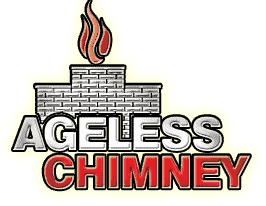Chimney Sweep in Levittown, NY
What our clients say




Read About Us
Browse Masonry & Brickwork
contact us
Why Professional Chimney Sweep Services are Essential in Levittown NY

Importance of Regular Chimney Maintenance
Regular chimney maintenance is crucial for the safety of your home. A professional chimney sweep ensures that your chimney is free from dangerous creosote buildup, which can cause fires. In addition, regular cleanings help improve your fireplace’s efficiency, allowing it to heat your home more effectively.
In Levittown, NY, residents rely on Ageless Chimney for certified chimney sweep services. Our experienced team conducts thorough inspections and cleanings, addressing potential issues before they become serious problems. Trust Ageless Chimney to keep your chimney in excellent condition, ensuring the safety and comfort of your home. Call us today at 516-795-1313 to get started!
Certified Professionals
Our team is fully certified and experienced in chimney maintenance. We ensure that every job is done right the first time, providing peace of mind.
Comprehensive Services
From cleaning to safety inspections, we cover all aspects of chimney care. Our services are tailored to meet the unique needs of each home in Levittown, NY.
Customer Satisfaction
We are committed to providing quality services to our clients in Levittown, NY. Our reputation in Nassau County reflects our dedication to excellence and customer care.

Certified Chimney Sweep Services
At Ageless Chimney, we pride ourselves on offering certified chimney sweep services in Levittown, NY. Our technicians are trained to handle all chimney issues, from blockages to structural problems. We use the latest equipment to ensure a complete and safe sweep whenever we visit your home.
In addition to cleaning, our team also performs essential safety inspections to identify potential hazards that could put your home at risk. By choosing Ageless Chimney, you can be confident that your chimney is maintained to the highest standards. Regular sweeps not only improve the efficiency of your fireplace but also extend its life.
Our services are designed to meet the unique needs of homes in Levittown, NY. Whether you have a traditional wood-burning fireplace or a modern gas unit, our certified chimney sweeps have the expertise to keep it running safely and efficiently. Trust Ageless Chimney for all your chimney maintenance needs, and enjoy peace of mind knowing your home is protected.

Serving Nassau County with Excellence
Ageless Chimney has been proudly serving the Nassau County community for many years. Our dedication to customer satisfaction and attention to detail have earned us a reputation for excellence. We understand the specific challenges homeowners in Levittown, NY, face regarding chimney maintenance and repair.
Our experienced professionals are committed to providing the highest level of service. We take the time to thoroughly inspect your chimney, identify any issues, and provide clear recommendations for maintenance or repairs. In Nassau County, residents trust Ageless Chimney because we prioritize safety and efficiency in every job we undertake.
Whether you need a routine sweep, a detailed inspection, or emergency repair services, Ageless Chimney is here to help. We are dedicated to keeping your chimney in optimal condition, ensuring your home remains safe and warm. Contact us today to learn more about our services and how we can assist you in maintaining a clean and efficient chimney in Levittown, NY.
